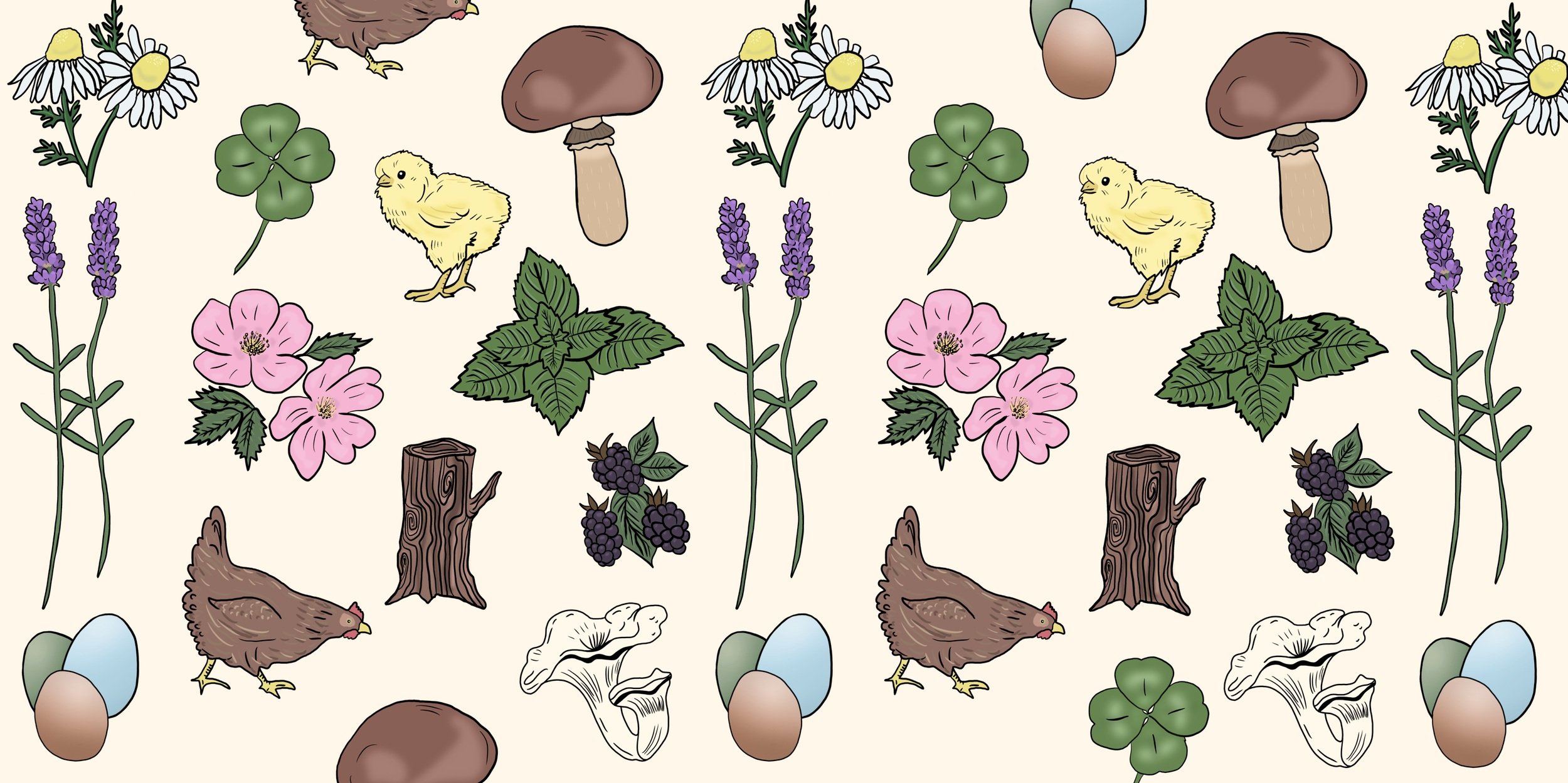The health of our family, friends and our planet is intimately tied to the continued resilience of
small farms.
Why are small farms important?
The dominant industrial farming & food distribution systems in North America rely heavily on monoculture farms, pesticides, and unequitable land worker compensation. The goal of these practices is to maximize profit over the health of the land or its inhabitants. Small farms help to diversify land use, growing food in a way that benefits local communities by increasing access to healthy food, allowing for autonomy over the types of food grown and how food is grown. By supporting small farms, local food systems and ecological systems are strengthened, as are the connections between people and the land they rely on.
What is a Food System and why do we need to build up alternative food systems?
A food system is a complex network including all the inputs and outputs associated with agricultural and food production and consumption. Food systems can vary substantially from place to place and over time, depending on location specific conditions. Here are a few ways in which the mainstream food system in America fails local communities:
Over one-third of all available food goes uneaten through loss or waste. Source.
Big 10 food companies Mondelez, Kraft, Coca-Cola, Nestlé, PepsiCo, P&G, Johnson & Johnson, Mars, Danone, General Mills, Kellogg's, and Unilever own just about everything you buy at big box grocery stores. Source.
Supermarket mergers are increasingly driving out smaller, mom-and-pop grocers and regional chain grocers. Kroger, Walmart and Albertsons own almost 50% of all grocers in the USA. We have roughly one-third fewer grocery stores today than we did 25 years ago. Source.
Over 400 million acres are set aside for monoculture farming alone, about 80% of all farmland, much of it grown to feed farmed animals. Source.
Here are a few examples of how supporting alternative food systems based in small, local organic farms benefit local communities:
CSA (Community Supported Agriculture) boxes and delivery services allow growers and consumers a more direct access to each other, allowing them to mutually support each other, sharing the risks and benefits of food production (learn more about CSAs)
Small farms allow for an increased diversity of farm products in a region, which decreases risk of problematic pests and allows native plants and animals a greater chance of co-existing in farmlands
Increasing diversity in local products available means that local communities have better access to fresh food and are less dependent on food produced in other parts of the world
Local food means a lower carbon footprint
Grocery prices have increased 20.4 percent since 2018. When grocery store chains merge, competition is reduced, and prices can be raised without losing customers.
What is Food Sovereignty and How can we practice food sovereignty in our communities?
Food sovereignty is the right of a community to actively shape their own food systems. It calls for a redistribution of power around food, considering what is grown, how it is grown, who grows it, how it is distributed, and who profits. La Via Campesina is a global peasant movement who coined the term “Food Sovereignty” over 25 years ago. Learn more about the history of this movement and what they are fighting for here.
Six principles of food sovereignty by Grassroots International, Nyeleni 2007
1. Focus on Food for People
2. Makes Decisions Locally
3. Value Food Providers
4. Build Knowledge and Skills
5. Localize Food Systems
6. Work with Nature
Communities that practice food sovereignty and food sustainability..
Have access to healthy foods
Have foods that are culturally appropriate
Grow, gather hunt or fish in a way that is sustainable over the long term
Distribute food in a way that helps people get what they need to stay healthy
Adequately compensate the people who provide the food
Source: Elise Krohn, Traditional Foods of Puget Sound Project

Community Connections & Educational Opportunities
in the South Sound
GRuB - GRuB works at the intersection of food, education, and health systems. With roots in the land, we create opportunities for people to learn, lead, and thrive. They envision an equitable world where we are all nourished by healthy relationships, resilient community, and good food. Each year, GRuB directly engages approximately 1,500 Thurston County residents of all ages in relationships-based programming around growing & preparing good food. They primarily work with marginalized young people with low incomes and/or behavioral and disciplinary indicators of high ACE (Adverse Childhood Experience) scores, families with low incomes, students, seniors experiencing hunger, tribal communities, and veterans.
Our Community Kitchen - Our Community Kitchen, a commercial kitchen space in Olympia, Washington that encourages and fosters like-minded small food businesses. Their motto is support local- buy local, make local, eat local, and sell local. There is no better way to contribute to the success of a community than to provide an accessible space for supporting local to happen at its fullest.
Kikis’ Culinary Collective - Kiki's Culinary Collective aims to uplift BIPOC chefs, farmers and food producers. While encompassing Olympia's rich local food ecosystem, with local & seasonal class offerings for the community. Try one of their fun & informative classes!
Community Alliance for Global Justice - Community Alliance for Global Justice strengthens the global food sovereignty movement through community education and mobilization. Embracing LOVE in the Food System is a paradigm shifting 8 week class that we took part of!